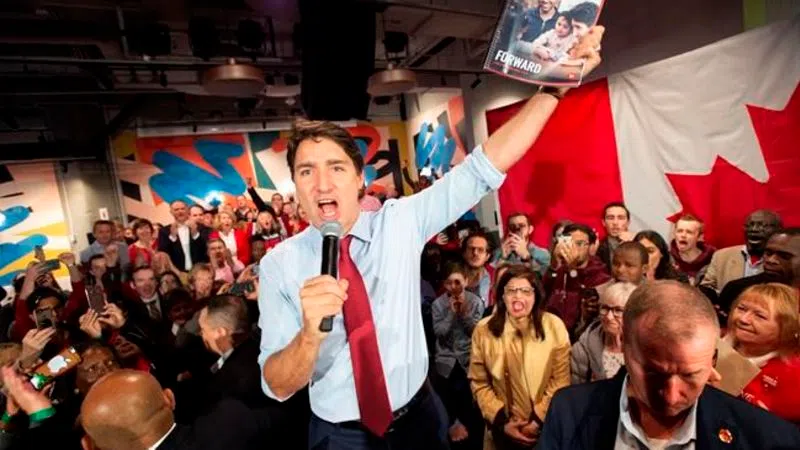
Trudeau seeks to solidify support in B.C. amid anger over pipeline purchase
BURNABY, B.C. — Liberal Leader Justin Trudeau sought to solidify his party’s uncertain electoral prospects in British Columbia Friday and bloody Jagmeet Singh’s nose at the same time by taking his election campaign to the NDP leader’s riding — Ground Zero of opposition to the Trans Mountain pipeline.
Hours after holding a rally with throngs of cheering Liberal staff and supporters in downtown Ottawa, Trudeau touched down in B.C. for the start of what is expected to be a gruelling cross-country push to voting day on Oct. 21.
The Liberals face a tough fight in Canada’s westernmost province, particularly in Vancouver and the Lower Mainland, where many voters are angry and frustrated with the Trudeau government’s decision to purchase the Trans Mountain oil pipeline.
The federal government bought the existing pipeline and the unfinished expansion work for $4.5 billion last year, promising to get it past the political opposition that had scared Kinder Morgan Canada off proceeding.
